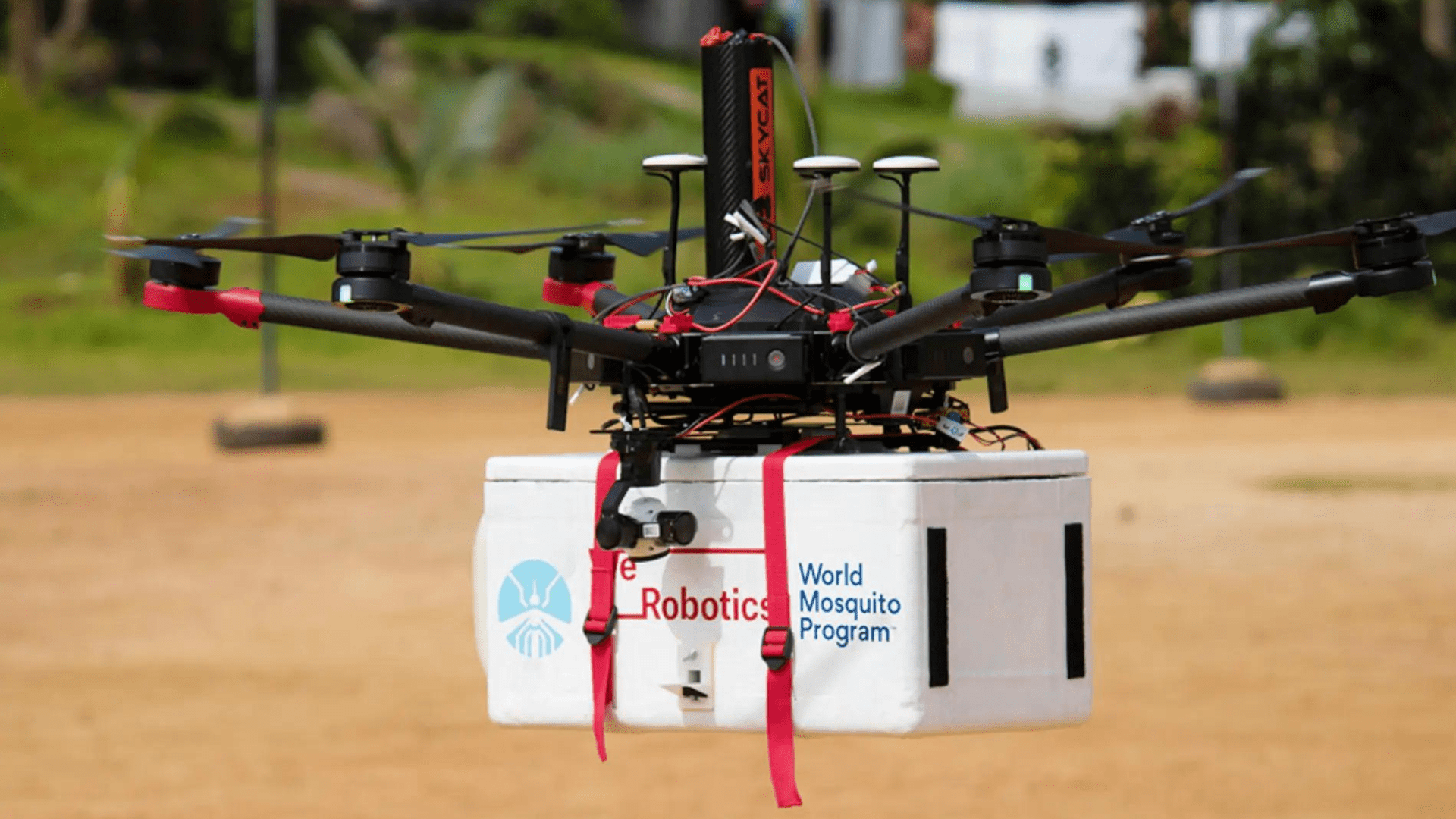Distributing infected mosquitos with a drone sounds like a recipe for spreading disease, but it’s actually for a good reason. A recent study found that it does the opposite when it’s a certain disease.
Stopping Disease

The mosquitos researchers dropped via drone were infected with the Wolbachia bacteria, a very common bacteria in insects. According to the World Health Organization (WHO), the bacteria blocks the virus that causes dengue fever, a painful infection that afflicts 390 million people a year.
The strategy of releasing the mosquitos is proving an effective way to stop the diseases they spread. For example, genetically modified mosquitos were modified to stop the growth of malaria parasites in the bugs’ guts, resist all four types of dengue, and lose the ability to sniff out human blood as a meal.
Getting the pests into the wild is a challenge. Most strategies involve researchers releasing them on the ground, often involving them going through rough terrain. However, a drone in Brazil recently transported and spread sterilized mosquitos, and now a new study used a similar approach. Ya-Hsun Lin is the lead author in the study from the World Mosquito Program (WMP) in Melbourne, Australia. The WMP pioneered the Wolbachia-based method to fight the spread of dengue.
Drone Delivery

Lin and his colleagues engineered the drone-based mosquito-delivery system that can carry up to 160,000 adult mosquitoes. The insects are stored in a temperature and humidity-controlled container to keep them healthy, but they are sedated until the drone reaches the drop zone. Finally, 160 mosquitoes are dropped at a time as the drone flies to distribute the bugs over a wide range.
In two field tests in Fiji, Lin and his team found that the drone distribution method was just as successful as the ground method. The only difference is that the mosquito dispatchers flew the drones at a safe distance rather than being on the ground in dangerous terrain. In addition, the second test confirmed that the mosquitos successfully the Wolbachia-blocking bacteria.
The WMP also deployed Wolbachia mosquitoes into the wild in Indonesia, which resulted in a 77% reduction in the spread of dengue. Researchers hope the innovative drone method can help afflicted areas, as the disease is rapidly rising.







